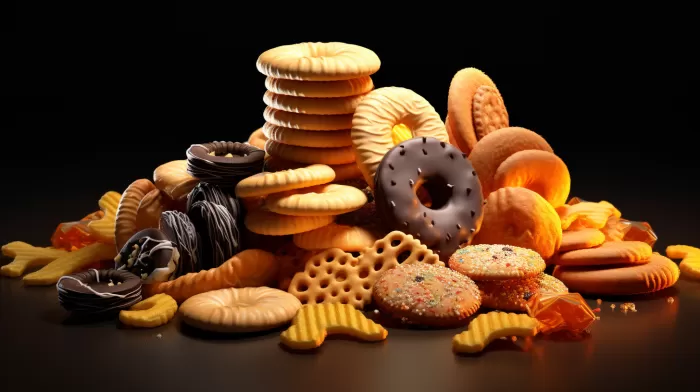When it comes to liver health, it’s crucial to pay close attention to the types of snacks you consume. Dutch research has revealed that snacking on the wrong types of foods, especially those high in sugar, can lead to abdominal weight gain and liver damage. Let’s dive deeper into the specific types of snacks to avoid, the results of poor snack choices, and ways to prevent liver damage while still enjoying the occasional treat.
Impact of Sugar-Laden Snacks
Junk foods like cookies, donuts, and potato chips contribute to both increased abdominal fat and the accumulation of fat in the liver. This fatty liver condition, known as hepatic steatosis, may progress into liver swelling and even cirrhosis if not kept in check. Over time, these conditions can compromise the liver’s ability to properly filter and eliminate toxins from the body.
The Dutch study found that frequent snacking on high-calorie foods exacerbates the storage of fat in the liver and belly, creating more significant problems than eating large meals without snacking. Researchers are particularly concerned about the potential repercussions of sugary snacks on children, who consume up to 27% of their daily calories from high-fat, high-sugar foods.
As Dutch researcher Mireille Serlie explains, “Eating more often, rather than consuming large meals, contributes to fatty liver independent of body weight gain. These findings suggest that by cutting down on snacking and encouraging three balanced meals each day over the long term may reduce the prevalence of NAFLD (non-alcoholic fatty liver disease).”
Sugar’s Role in Liver Damage
The liver plays a critical role in processing and metabolizing sugar. Consuming excessive amounts of sugar may lead to a condition called non-alcoholic fatty liver disease (NAFLD), an increasingly common liver problem affecting millions of people worldwide. In the early stages, the disease may not exhibit any symptoms, but it can eventually result in liver inflammation, fibrosis, and liver failure if left untreated.
One of the main culprits of liver damage is fructose, a natural sugar found in fruits, honey, and high-fructose corn syrup. When breaking down fructose, the liver produces triglycerides—a type of fat that can enter the bloodstream and be stored. Excessive fructose consumption can cause the liver to produce too many triglycerides, contributing to fatty liver disease.
Smart Snacking for Liver Health
It’s clear that habitual consumption of sugary, high-fat snacks can result in liver damage and other health issues. To protect your liver and support overall well-being, consider opting for healthier snacking alternatives, including:
- Fresh fruits and vegetables: A great source of vitamins, minerals, fiber, and natural sugars that support liver function and general health.
- Nuts and seeds: Rich in healthy fats, protein, and essential nutrients, nuts and seeds can provide a satisfying and nutrient-dense snack option.
- Whole grains: Whole grain snacks like popcorn, brown rice cakes, and whole-wheat crackers are high in fiber and provide sustained energy while supporting liver health.
- Low-sugar dairy products: Low-fat yogurt, cottage cheese, and other low-sugar dairy products provide protein and essential nutrients without the adverse effects of excess sugar consumption.
Incorporating Healthy Habits for Improved Liver Health
In addition to making smarter snacking choices, the following healthy habits can further safeguard your liver and overall health:
- Maintain a balanced diet, focusing on whole foods instead of processed items.
- Stay active through regular exercise, as physical activity helps burn excess fat and fosters overall well-being.
- Limit alcohol consumption, as excessive drinking can cause liver damage and increase the risk of fatty liver disease.
- Prevent toxin exposure through the use of natural cleaning and personal care products, as reducing your toxin load helps support liver function.
- Stay informed about the medications you take, being mindful of potential liver-damaging side effects, and discussing any concerns with your healthcare provider.
In conclusion, protecting your liver requires a multi-faceted approach involving diet, exercise, and healthy habits. Making smart snack choices and embracing a balanced lifestyle can help prevent liver damage and promote overall health for years to come.



